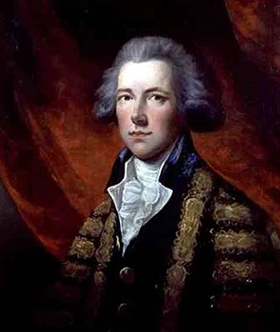|
Pitt–Tierney Duel
The Pitt–Tierney Duel took place on 27 May 1798 when the Prime Minister of Great Britain William Pitt the Younger met his political opponent George Tierney in a duel with pistols on Putney Heath outside London. Background Pitt had been Prime Minister since 1783 and from 1793 had led the country during the French Revolutionary War. Tierney was a Whigs (British political party), Whig opposition figure associated with Charles James Fox and the Classical radicalism, radical wing of the opposition Whigs (British political party), Whig Party. During a debate in the House of Commons of Great Britain, House of Commons, Pitt had been proposing a new measure to increase the manpower of the Royal Navy. Tierney, in the absence of Fox acting as the resident leader of the Foxite Whigs, suggested a longer consideration of the Bill (law), bill. Pitt frustrated by this move, had suggested Tierney's attitude came from a "desire to obstruct the defence of the country". When Tierney protested and ... [...More Info...] [...Related Items...] OR: [Wikipedia] [Google] [Baidu] |
William Pitt The Younger
William Pitt (28 May 1759 – 23 January 1806) was a British statesman who served as the last prime minister of Kingdom of Great Britain, Great Britain from 1783 until the Acts of Union 1800, and then first Prime Minister of the United Kingdom, prime minister of the United Kingdom from January 1801. He left office in March 1801, but served as prime minister again from 1804 until his death in 1806. He was also Chancellor of the Exchequer for all of his time as prime minister. He is known as "Pitt the Younger" to distinguish him from his father, William Pitt the Elder, who had also previously served as prime minister. Pitt's prime ministerial tenure, which came during the reign of King George III, was dominated by major political events in Europe, including the French Revolution and the Napoleonic Wars. Pitt, although often referred to as a Tory (British political party), Tory, or "new Tory", called himself an "independent Whig (British political party), Whig" and was generally oppo ... [...More Info...] [...Related Items...] OR: [Wikipedia] [Google] [Baidu] |
